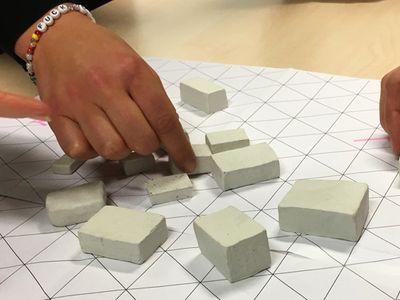Exercises in form studies and design take place at the beginning of each week. Both quantity and quality are of great importance, as is the student's documentation of and reflection on the exercises. After briefing, the students work individually during the week with the exercise that is completed by discussions in a seminar the following week.
During the second part of the course, a smaller design project with focus on formgiving (gestalt) is carried out, based on the earlier exercises.
